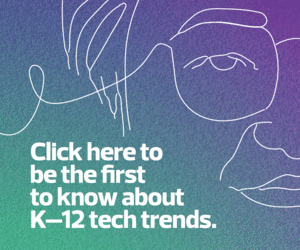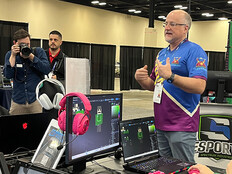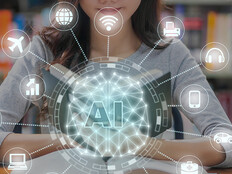With educators busier than ever, Tholfsen says, the greatest benefit AI can offer them is time. AI programs can gather data teachers would traditionally have to gather themselves manually.
What Is Artificial Intelligence?
Trying to define artificial intelligence is a bit like asking about the meaning of life: You will get a slightly different answer from everyone. At its core, AI is an area of computer science addressing the simulation of intelligent behavior in computers.
Michelle Zimmerman, a classroom teacher, researcher and school leader at Renton Prep Christian School in Washington state and author of the book Teaching AI: Exploring New Frontiers for Learning, notes that psychologists and neurologists in the field don’t even agree on what counts as human intelligence.
The definition also changes over time. Not too long ago, simple calculators were considered AI, while the term now is associated with a variety of innovative technologies, such as those that power content filtering and endpoint security.
EXPLORE THE TREND: Here are three ways classroom use of artificial intelligence will grow in 2022.
Artificial Intelligence vs. Machine Learning: What’s the Difference?
Though not all AI involves machine learning, it is a popular subcategory of the technology. Machine learning refers to machines that process vast amounts of data and also have the capacity to get better at it the more they “learn,” Zimmerman says.
“You can train models with machine learning to improve things. An example is speech-to-text technology,” Tholfsen says.
“Machine learning needs a lot of data to train it to look for patterns and understand what it is looking for. The more data, the more refined or accurate the results. The results, though, are only as good as the data included,” Zimmerman says.
READ THE WHITE PAPER: Achieve effective data analytics.
How Can AI Be Used in K–12 Education?
AI is already playing a role in many classrooms and has promising benefits that can be integrated now and in the future.
Intelligent tutors: What if an AI program could play the role of a teacher or coach, leading students through lessons and even motivating them? Nancye Black, founder of the Block Uncarved and project lead for ISTE’s AI Explorations program, says AI can support learners in a variety of ways. As a Columbia University researcher, she’s exploring how avatar interactions impact students. “There is some really promising research around the use of AI agents supporting girls and students of color, who are able to — in a lower-risk situation — ask for help and have social learning, even when they are learning independently,” Black says.
Reading workshops: If educators could host reading workshops around the classroom with each individual student, they would. Instead, AI-powered products such as Microsoft’s Immersive Reader can help educators focus on improving education for the 1 in 7 learners who have a disability, Tholfsen says. The product uses text decoding solutions to individualize instruction.












